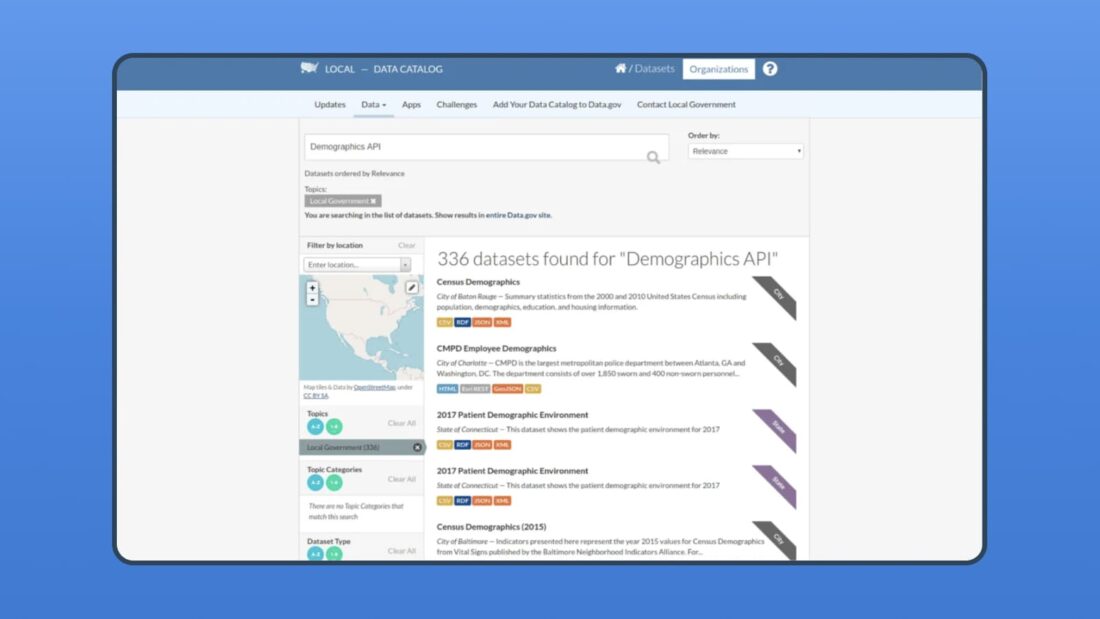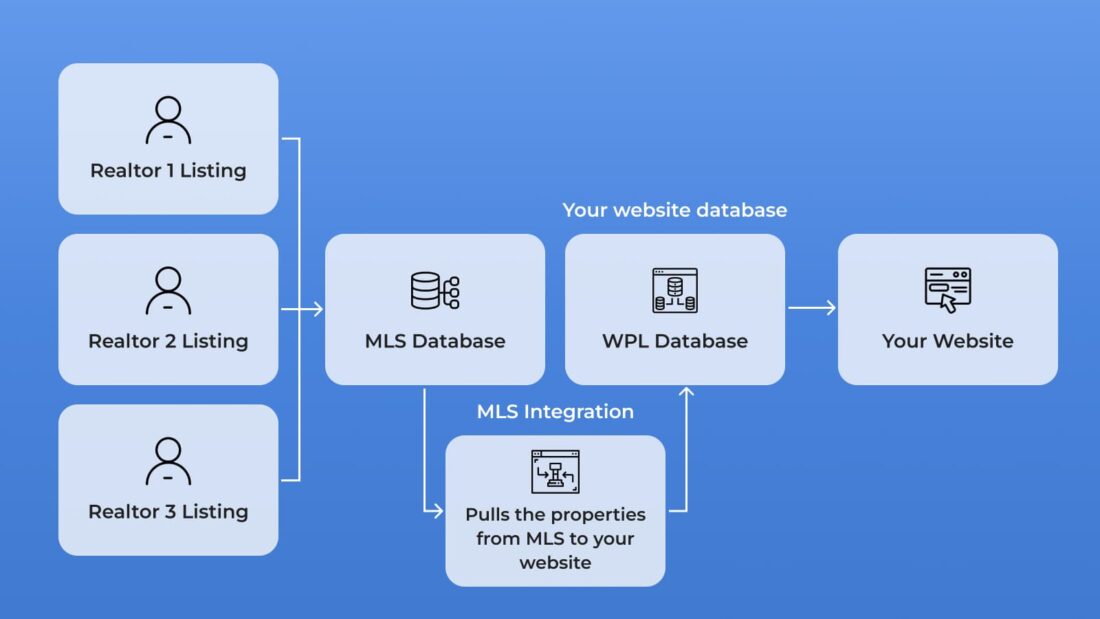Real estate APIs indeed are revolutionizing the industry by enabling creative and sustainable products in a concise digital format. Basically, they bridge vast data repositories and applications adapted for real-world users, providing real-time insights for developers, investors, and consumers of real estate at once.
In this article, we’ll discuss what role APIs play in the real estate field, what property data APIs and, ultimately, you’ll see a list of the 13 best real estate APIs.
Role of APIs in Real Estate
APIs (Application Programming Interfaces) are the most effective tool for helping real estate agencies engage better with vast databases and other digital tools. These APIs allow real estate websites and apps to interact smoothly, providing instant access to information on properties such as listings, valuations, and neighborhood statistics. If, for example, combined with blockchain technology in real estate, APIs enhance transparency and security, making property transactions more efficient and trustworthy.
The most critical advantages of real estate APIs to professionals are:
- Fast integration of property data into their business platforms
- Real-time access to public records and property values
- Improving user experience within the real estate portals
- Ability to retrieve property and mortgage details efficiently
One such example is the Zillow API. It’s rich in features, which gives a fine-tuned view of property records and market dynamics. In general, APIs are already becoming the next frontier in real estate innovation and efficiency.
You can find the most relevant real estate API on Data.gov:

Property Data API
Currently, real estate professionals are increasingly leaning towards Real Estate APIs to make their operations more efficient. A Property Data API is important because it forms the backbone on which detailed data about the property being marketed is accessed. For example, a real estate business like PierreCarapetian.com is supplied using the precise data that gets into their property listings and market analysis. Real Estate APIs provide instant access to all kinds of data, including:
- Details about the property: Size, age, and features.
- Valuations: Property values based on what has recently sold.
- Neighbourhood Statistics: Crime rates, schools, and amenities.
- Public Records: Historical sales data, property tax information.
- Rental Rates: Current market rates for similar properties.
By using RESTful API, Real Estate APIs offer accessible communication between real estate websites and apps, enhancing the user experience for both end clients and agents. Large data pools that include commercial and property listings with mortgage information help stakeholders make well-informed decisions much more quickly. Agencies like PierreCarapetian utilize data to inform clients on the state of real estate with updated information to ensure a competitive advantage in the highly dynamic real estate market.
At Cleveroad, we help proptech teams turn disparate property datasets into reliable, user-ready features. Our specialists plan and execute real estate API integration end-to-end, from vendor due diligence to secure ingestion and normalization.
We’ve delivered MLS/IDX pipelines and harmonized provider schemas so search and valuations stay consistent across web and mobile. Teams rely on us for rate-limit handling and smart caching, which keeps data fresh and costs predictable. We design for data governance and RESO Web API compliance, so your platform meets industry expectations without brittle glue code.
For founders building sustainable products, we can enrich listings with ESG real estate data and climate-risk overlays to support greener decisions. If you need a partner to evaluate options and prototype quickly, we can help you choose the right APIs and architect the pipeline to ship a scalable real estate platform.
13 Best Real Estate APIs for Developers

Most of these APIs bring developers a host of data to make sure real estate professionals are ahead of the game. Here are the 13 best real estate APIs you should look into:
- Zillow API: Offers property valuations, listings, and mortgage rates.
- Realtor API: Gives access to millions of residential real estate listings and related information.
- Walk Score API: Gives data on walkability, public transit, and community attributes.
- Onboard Informatics API: Delivers in-depth neighborhood, property, and school data.
- Estated API: Provides detailed property records, including owner information, valuations, and tax data.
- SimplyRETS API: Allows creating applications with MLS data.
- Rets.ly API: Offers standardized real estate data from multiple MLS providers.
- Attom Data Solutions API: Offers information on in-depth property, foreclosure, and neighborhood data.
- Real Estate Cloud API: Allows the creation of real estate applications through integrations with real estate data.
- Apartment List API: Focuses on the rental rate and property features of listings.
- Spark APIs: Allow the professional realtor to connect directly to databases of MLSs.
- DataNerds Property Data API: Access to a wide variety of property and real estate data.
- RapidAPI’s Real Estate: An aggregation of many APIs in real estate for broad data needs.
These APIs give real estate firms the flexibility not only to enhance but also to deliver timely, current information critical for them to maintain a competitive market edge. Integrating these tools synergistically fits into their business model and promotes more effective decision-making for agents and clients, too.
What’s Next?
To conclude, APIs are transforming the way professionals interact with property data for agents, brokers, and companies. They allow the ingestion of enriched, detailed information on properties into countless sites and applications related to real estate, from residential homes to commercial listings. This makes it possible for users of such app programming interfaces to access instantaneously important information on a range of things like property valuations, real estate listings, public records, and neighborhood statistics.
Generally, real estate APIs make the digital customer experience more engaging, hence providing companies with the opportunity to provide their customers with updated and all-inclusive property information.